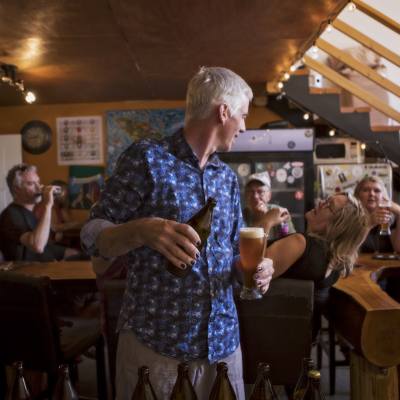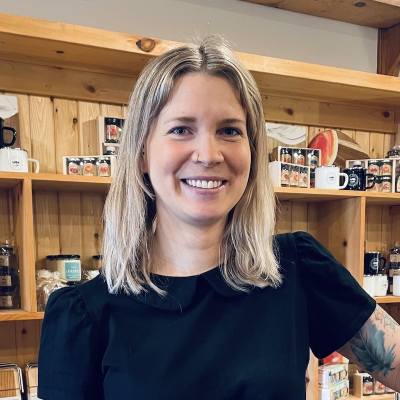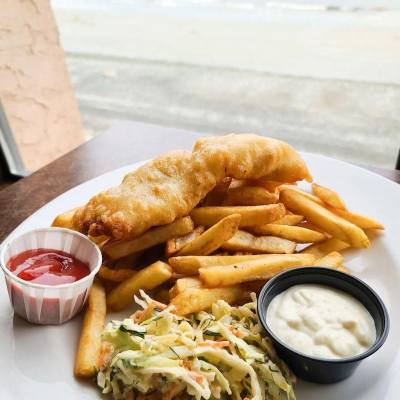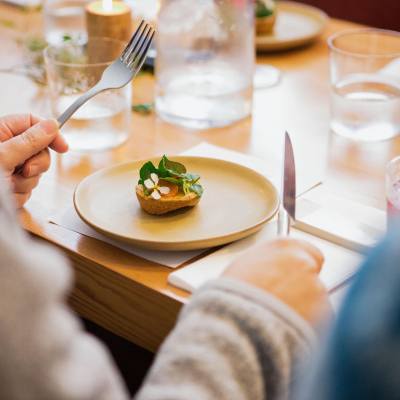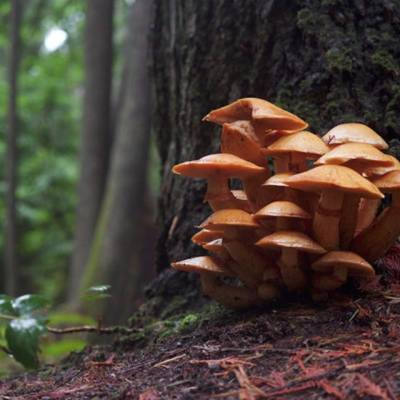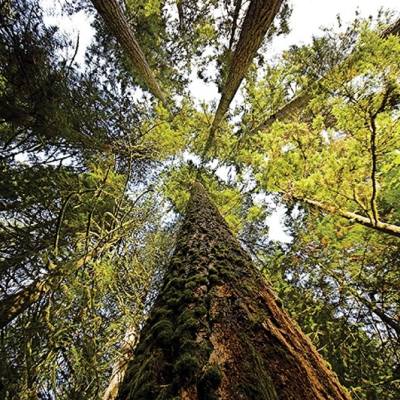Sustainable Businesses
Culinary businesses in Parksville Qualicum Beach are doing their part to protect the environment.

“One person is not going to change the world. We all have to do it together.”
It’s a sentiment spoken by Chelsea Enns of Little Qualicum Cheeseworks, wise words by someone who is doing their part to create a more sustainable future. She recognizes the important role businesses play in protecting the environment. “If consumers see the business doing their part, then it doesn't feel like all the pressure is just put on the consumer,” she explains. “And if we're doing our part, then they also feel that ‘well, what I'm doing is not for nothing, and maybe I should also be doing this better.’”
“ One person is not going to change the world. We all have to do it together. ” Chelsea Enns | Little Qualicum Cheeseworks
The farm has implemented all kinds of environmentally friendly procedures, like utilizing cheesemaking waste that makes its way back into the fields to help feed the cows, completing a sustainable circle. They also keep all their milk on the property, which cuts down on transportation emissions. Additionally, they avoid turning over their fields each year to maintain a better ecosystem and minimize erosion. “We’ve also partnered with Salmon-Safe; we work with them to make sure that we’re protecting our waterways and that we’re not affecting the salmon habitats that are very close to home,” Chelsea notes.
The farm is also passionate about educating their visitors on sustainable practices. “The main goal by having people visit our farm is to educate them on where their food comes from, how it is made, how it is grown,” Chelsea says. “There’s no better way than to let people get in the midst of it.”
Public education on sustainability is something that Ben Patarin from Forest for Dinner also feels strongly about. The owner of the foraging company takes people on tours to show them how to forage properly. “A big part of Forest for Dinner is trying to educate people about the wild foods that they are surrounded with,” he says. And this includes kids as well as adults. “The earlier you start learning about the [plants], the more likely you’re going to be willing to protect your environment.”
The interest in becoming knowledgeable about harvesting wild foods safely and in a way that protects the environment for generations to come is a positive mindset shift that began to really develop in people during the pandemic. And not just in individuals; businesses have also been shifting to use as many local ingredients as possible. Forest for Dinner’s Celia Auclair says, “We can really see there is more and more interest from the restaurants and also from the breweries. They’ve started to realize that there is a lot more that they can offer, and it’s right at their doorstep.”
Happy Jack’s is a restaurant in the region also doing their part to protect the environment. “It’s always been incredibly important to always be looking at ways to innovate, to get better, to reduce our carbon footprint,” says Jordan Porth, owner of the Parksville restaurant. “Our priority has always been to be pushing the envelope on different ways we can be more sustainable.”
“ Our priority has always been to be pushing the envelope on different ways we can be more sustainable. ” Jordan Porth | Happy Jack's
Their vertical aeroponic garden systems are a testament to that. For the past few months, they’ve been growing greens for their menu in them, with the goal of producing 100% of their own greens within the year. It’s an idea sparked by a business in northern B.C. that was providing food for local First Nations families. “So we purchased one as a test and were able to prove that it can function year-round in our climate,” Porth says. “It’s been a great way for us to reduce our impact.”
The unique gardens (of which they now have five) grow greens up to three times faster with up to 30% larger yields than traditional gardens. This allows them to use 90% less water than traditional farming techniques. Alongside their implementation of biodegradable straws, recyclable packaging and local baking and farming collaborations, Happy Jack’s is proud of how they commit to their values. “As leaders in the community, we can set a great example to not only our guests, but to our employees, to the families of the employees,” says Porth.

Collaborations between businesses is a common theme in Parksville Qualicum Beach, exemplifying the close community spirit for the betterment of the people and the environment. Dave Paul from Love Shack Libations is another business owner who always looking for ways to collaborate with others in the area. One such recent partnership led to a new beer created with the aim of bringing awareness to ocean conservation.
“We made a lightly salted tart wheat beer with the biological department from Vancouver Island University,” says Paul. “They approached me through the brewery and mentioned they’d like to do a little collaboration with me.” Paul immediately thought about making a gose beer, as it traditionally has salt in it, which connects to the university's research study of ocean salinity. “We figured out that if we did this together, we can get the word farther out about trying to save the oceans.”
“ We figured out that if we did this together, we can get the word farther out about trying to save the oceans. ” Dave Paul | Love Shack Libations
And it appears the beer has done its just, sparking conversation with those who order it at Love Shack. “The beer went over very well, and it really got some exposure for the Deep Bay Marine Field Station and what they’re doing,” says Paul. A QR code on the bottle led to information on the research and an invitation the research centre to visit to find out more.
“These community partnerships are really important to me,” Paul says. “I really am trying to make a difference in our little part of the world.”
With Parksville Qualicum Beach becoming such a burgeoning culinary destination, it’s not surprising to learn that the food and beverage industry leaders there are taking responsibility for their local environment in various ways. As Chelsea says, “It all works together. And if one of us isn’t doing our part to keep the environment clean, then eventually, we’ll all suffer from it.”
